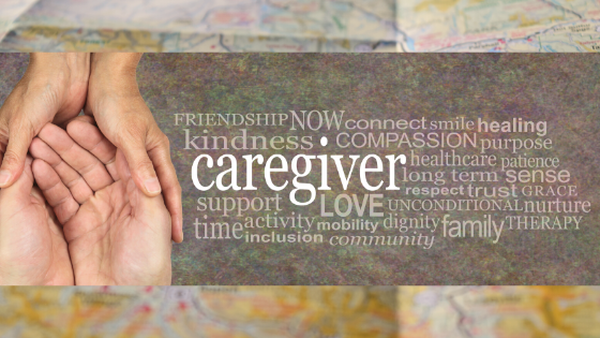|
The Strange Psychology of Stress and Burnout, which appeared in BBC WorkLife’s November 17, 2019 post, discusses the relationship of stress to Cortisol; important. The article described several results or diseases that begin with exposure to prolonged stress. It also mentioned some situations that can cause stress but left one out; caregiving! Already, 34.9 million people are self-identified caregivers. In addition, some people are starting to do caregiving and don’t realize they’re in this new role; yet.
This article shows the photo of a man; yet 66.5% of caregivers are women. The photo shows multiple phones. Yes, many caregivers have spent time on the phone to coordinate care for the elder. However, caregivers face the competition of simultaneously dealing with home, job, and possible child care while doing caregiving! The focus of the article is on job-related stress. Caregivers bring their stress to work with them. Thus, what looks like job burn-out might be a result of simultaneous stressors; job and caregiving. The remedy described in the article involves changing the perception of the person under stress; Cognitive Behavioral Therapy and changing jobs or shifting responsibilities. Sadly, these are not usually available to the family caregiver. She may not have insurance coverage for therapy. Group insurance plans may not recognize family caregiving as a stressor worthy of intervention. How does the working caregiver access therapy? She has no “off-duty” time. She goes from the career job over to the home “job”. It’s time for all of us to make sure caregivers as SEEN and heard.
0 Comments
The Reuter's article, U.S wages lost to unpaid family care to hit $147 billion by 2050, describes lost wages and pressure on caregivers to switch to part time work or quit all together. These are definable numbers which the article describes well. One doesn’t hear enough about these issues and costs in the news media. I call upon anyone who knows a caregiver to insist on better public discussion on these caregiving issues/ costs/pressures.
I've always worried that caregivers also lost opportunity as well as wages. They are less likely to be offered new projects at work which can polish one's resume. They can’t take the lateral move which puts the employee in line to move up in a branch of the organization. A promotion comes with more demands on time and a different schedule. How can the working caregiver manage that? Promotions may mean a move out 0f town; how does a caregiver juggle that? So less chances to rise in a career. In addition, caregivers suffer hidden damages to their careers. Just taking repeated PTO (Paid Time Off) casts a shadow over one's career. Eventually, PTO runs out. When PTO runs out, the employee is left with FMLA (Family Medical Leave Act). That is usually unpaid. The employed caregiver must consider loss of income along with caregiving pressures. I'm also a member of Society for Human Resource Management (SHRM), and read their daily dispatches. It appears that employers are more comfortable allowing the employed caregiver a block of time, like a week or two, to handle a health crisis. Piecemeal time tracking is another matter. There are some tracking systems, however, these seem to be evolving methods. The employed caregiver may need to use her time in piecemeal form. Perhaps she takes her lunch time to supervise the elder taking medications. Her commuting time would be deducted from PTO or FMLA That's the typical shape of elder caregiving, a mosaic of times and tasks squeezed together throughout the day. So both the employed caregiver and her employer are both carrying this process. The caregiver is doing the tasks and the HR manager is handling the administration. This produces an implicit time cost to the employer. Why would the caregiver’s boss consider her for special projects, a move, or a promotion? These would demand more of her time and the employed caregiver doesn't appear to have any time. In order to develop one's career, one must appear to be ready and willing as well as able. No employer really knows whether any employee is truly available. However, a string of PTO/FMLA requests create an image of less availability. It’s a subtle form of job “loss” that doesn’t show on the paycheck. Only the US and England have a patchwork-to-none system for dealing with our aging population. Other European countries have created caregiving support systems. Why aren’t we looking at them? |
Author "A Senior Moment" is written by Ms. Sara Lieber, owner of Senior Sidekicks. Ms. Lieber has over 30 years of experience in senior care. Archives
March 2024
Categories
All
|



 RSS Feed
RSS Feed